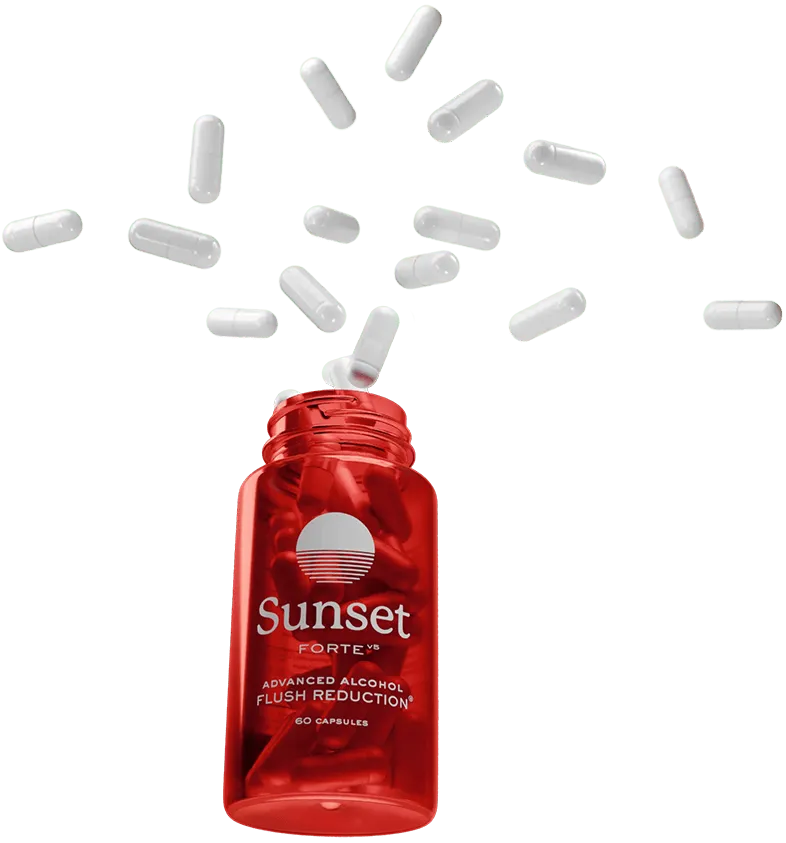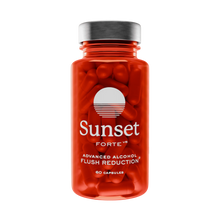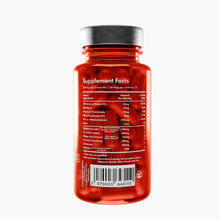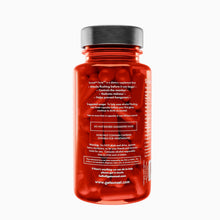Best Ways To Improve Shortness Of Breath After Drinking Alcohol

⏱️ TL:DR ∙ Article in 20s
When alcohol causes chest pain or breathing issues, it likely indicates an allergy or intolerance. Antihistamines may help, as do over the counter Flush or Glow supplements, read on to find out what helps and hurts as well as how to prevent it happening again in the future -- we strongly recommend seeking medical attention if the chest pain or shortness of breath persists.
Action items:
- Laboured breathing
- Causes of shortness of breath after alcohol
- Avoiding shortness of breath after alcohol
Share this article
Copy and paste this link
Chest pain and difficulty breathing after drinking alcohol can be alarming. If you've ever had a glass of wine or beer only to feel tightness in your chest or shortness of breath, you know how unsettling these sensations can be.
The good news is that in most cases, alcohol-related breathing issues are temporary and not life-threatening. However, the symptoms should not be ignored. Understanding what causes chest pain and breathing changes after drinking can help you get relief and prevent future episodes. This article explores the common culprits behind post-alcohol breathing troubles. You'll learn why alcohol impacts lung function for some people, along with risk factors that make respiratory distress more likely. We'll also cover techniques to open up airways and ease chest tightness when symptoms flare up.
Arm yourself with knowledge about the relationship between alcohol and breathing difficulties (and perhaps a bottle of Asian flush pills). Small adjustments to your drinking habits could help you raise a glass without gasping for air. Read on to breathe easier!
Before we get started, it is important to point out that breathing is a key requirement for you to keep living. If you drink something and it makes it harder for you to breathe, then it might be your body telling you not to drink it.
This is certainly the case for sufferers of an alcohol allergy. If a few drops of alcohol cause you to experience symptoms of allergy like hives, itching, and difficulty breathing, then it's probably safe to say that you should ignore this article and simply opt for the virgin mojito. If your symptoms are severe, it's incredibly important to seek medical attention and see your doctor about your symptoms when consuming alcohol.
That said, those of you who are intolerant to alcohol, such as those with Asian flush or alcohol flush reaction, will know that it takes slightly more than a few drops to cause your symptoms to begin. For you guys, here are some reliable tricks to breathe easier when enjoying your next alcoholic beverage.
But first:
What is laboured breathing?
Laboured breathing, or restricting breathing, is abnormal respiration defined by increased effort to breathe. In short: it feels hard to breathing normally. Common everyday causes of laboured breathing can include asthma. If you experience laboured breathing or the feeling of a heavy chest after drinking, it could be caused by an alcohol flush reaction.
What Causes Shortness Of Breath After Drinking Alcohol?
One question you likely have around this topic is - what causes shortness of breath after drinking alcohol? Why do you struggle to breathe when you drink alcohol? To no surprise, there are quite a few likely causes of shortness of breath after drinking alcohol. It could be something entirely unrelated to your alcohol intake, like a chronic obstructive pulmonary disease. Perhaps you're having an asthma attack - which could be entirely unrelated to your alcohol consumption too.
Or, it could be the types of drinks you consume. Alcoholic beverages high in tannin can trigger those with alcohol flush conditions. In turn, you may feel your breathing becoming more labored or difficult. Maybe it's something else - like how you prepare for a night of alcohol consumption. Many people eat a huge meal to help soak up the alcohol. But, a full stomach can put pressure on your lungs - causing shortness of breath.
The fact of the matter is that there are so many different causes of shortness of breath a after drinking alcohol. It's tough to say exactly what your most likely culprit is without knowing more. That's why we're going to share some tips to help you avoid difficult breathing the next time you consume alcohol.
How To Avoid Shortness Of Breath After Drinking Alcohol
So how can you avoid labored breathing after drinking alcohol? The obvious answer is to avoid excessive alcohol consumption. But what if you have just a few drinks here and there? Are you forced to abstain entirely? Not necessarily.
There are a few things you can keep in mind that will help you avoid shortness of breath while still having a couple of cold ones with your friends. Let's start by explaining how to select your drinks carefully:
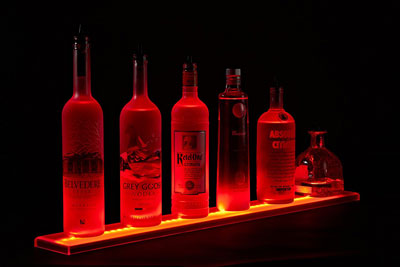
1. Avoid alcohol with high tannins
Not all alcohol is the same when it comes to how severely it can provoke breathing difficulties. In particular, alcohol with high levels of tannins can be a big culprit in exacerbating Asian flush and making it harder to breathe when having some drinks.
The term tannin (derived from the word tanna, an old German word for oak tree, as in Tannenbaum) refers to the use of wood tannins from oak for the purposes of tanning animal hides into leather, hence the word 'tanning' for the treatment of leather.
When alcohol is brewed in oak barrels, over time it picks up these tannins which affect its taste, aroma, and colour. Red wine, beer, and whiskey are examples of some types of alcohol that contain large amounts of tannins because of their brewing methods.
As you can see, being selective with the kind of alcohol you consume can be an easy and effective way to breathe easier when enjoying your next drink.
For example, cocktails or mixers made with vodka or gin make great low tannin choices. Also, choosing white wine over red can reduce your tannin intake and make all the difference when you're on your next dinner date.
It’s also helpful to choose drinks with lower alcohol content, like spritzers that are alcoholic drinks mixed with carbonated water. This way the amount of alcohol you’re ingesting is actually lower than expected. An easy way to help support your lungs on a night out!

2. Eat light before drinking alcohol
Eating smaller meals more often throughout the day can help you reduce the severity of breathing difficulty when consuming alcohol. Bigger meals can cause your stomach to bloat and put pressure against your lungs. This makes it even harder to breathe when the lungs are already having a hard time with the toxins from alcohol.
It’s important to have some food in your stomach to help soak up the alcohol you drink. Having smaller meals throughout the day can help prevent the alcohol from entering the small intestines too quickly and thus can slow down the rate of alcohol absorption.
Watching the number of carbohydrates you eat may also help you save energy, which plays a large role in how the lungs and respiratory passages respond to toxins that enter the body.

3. Exercise
If you experience difficulty breathing, it could be weak lungs to blame!
When muscles are in better shape, they use oxygen more efficiently, and that's great to ensure your lungs can respond to the toxic stresses caused by alcohol consumption.
Walking outside, hiking or pedaling on an exercise bike at home or at the gym are some great activities to start with. Working out with light hand weights and regular stretching are other fitness options for helping your lungs better deal with the stresses that come with alcohol consumption.
Swimming is also a great activity to help strengthen your muscles without having to set foot in a gym.
Doing any type of safe, healthy exercise is only going to help you, your body and your lungs.
4. Hydrate, hydrate, hydrate
Water is your friend! Making sure to drink plenty of water or non-alcoholic drinks during a night out is a great way to keep your alcohol intake in check.
A great routine to follow whenever you’re going out for drinks is to start drinking water even before you go out to give your body a head start. Then just make a point of drinking water and non-alcoholic drinks throughout the night, in-between alcoholic drinks.
Your lungs will thank you!

5. Know your limits
Knowing your limits when it comes to how much alcohol you can consume is very important to prevent all kinds of embarrassing things that you wish didn't happen at all.
That said, it can also be a useful skill in preventing the onset of the tight feeling in one's lungs often felt after drinking alcohol.
The only difference is that instead of learning how much you can drink before you get drunk, one should record how slowly they need to drink a glass of white wine to not feel any restriction in their breathing at all. For some people, it can be 10 minutes, for others 30 or 40. It will all depend on your own body's ability to metabolise alcohol and break down the various other toxins that come along with it.
Think of it as a special experiment in the name of alcohol science. Either way, knowing your own limits with drinking alcohol is always a good thing.
Bonus Point 6: Take an Alcohol flush supplement
It's precisely these other toxins that come along with alcohol consumption that supplementation does a great job of reducing. For example, one metabolic toxin called acetaldehyde has been shown to be the prime cause of breathing difficulty in 30-40% of East Asian alcohol drinkers. It has also been linked to increased cancer risks when high levels of it accumulate in your body.
Alcohol flush (sometimes known as Asian flush) specific supplements such as Sunset Alcohol Flush Reduction help reduce the amount of acetaldehyde in your blood when you consume alcohol. This helps you breathe easier and allows you to enjoy alcohol like everyone else.
Whatever you choose to do on your next night out, make sure to drink alcohol in moderation and be mindful of your breathing.
Final Thoughts On Shortness Of Breath After Drinking Alcohol
There you have it - we've shared a few of the best ways to improve shortness of breath after drinking alcohol. There are five tips you should keep in mind the next time you toss a few back:
- Avoid Alcohol With High Tannins
- Eat Light Before Drinking Alcohol
- Exercise Regularly
- Hydrate, Hydrate, Hydrate
- Know Your Limits
As a bonus tip, you can consider taking an alcohol flush supplement. This will help your body better break down alcohol - particularly, acetaldehyde. Sunset Pills are the #1 way to maintain your regular social life without the worry or discomfort associated with flushing. Remember - if you are experiencing trouble breathing, it is probably best to stop drinking for the night and relax. If you are still concerned, consider calling a doctor or visiting your local ER.
Enjoy drinking again and get Sunset Alcohol Flush Support for
33% off while stocks last!
What’s inside?
We use a pharmacist-formulated blend of Glutathione, Dihydromyricetin, Cysteine, L-Theanine, & B Vitamins to stop alcohol flushing before it can begin.
Learn more
94% of people who try Sunset are satisfied with the results.
